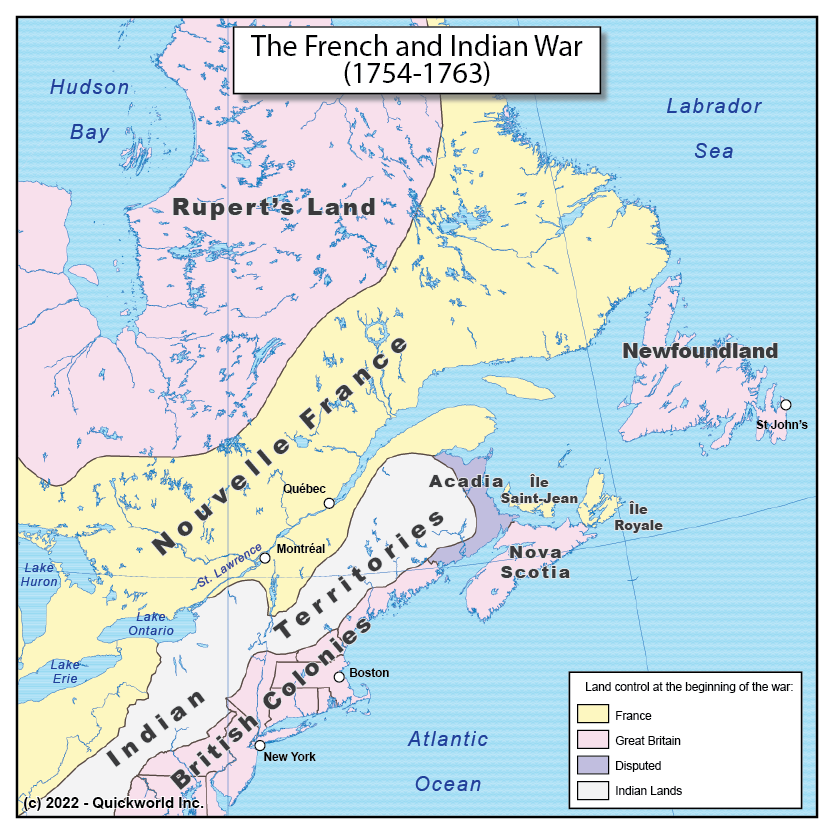The French and Indian War represents one of the most significant events in the modern history of North America. It was directly responsible for the near total control continent by the British, and indirectly to the loss of its most populous colonies.
The French and British had long been rivals in North America, ever since Cabot (1497) and Verazzano (1524) visited the shores of the continent for the English and French monarchs. By the mid 1700s, France had a strong grip on the two major river basins: the Mississippi and St Lawrence Rivers, home to a vast amount of fur trade. The British controlled a much smaller part of the land and the Eastern seaboard, but their settlement was much more advanced and new comers were arriving regularly. In the interior, control of the territories by Europeans was only partial, with many native tribes often acting in concert with one colonial power to counter the ambitions of the other.
The Seven Year war raging over Europe kept the French army busy, and left its North American contingent depleted. The British viewed it as an opportunity to conquer New France, and they succeeded despite the joint effort of the French troops led by the Marquess of Montcalm and Canadien militias. Quebec, the capital of New France fell in 1759 - both Montcalm and the British commander Wolfe were killed in the Battle of the Plains of Abraham. The Treaty of Paris of 1763 confirm the total disengagement of France in that region.
The need of the British authorities to compose with still non-pacified Indian territories and a new colony populated by French settlers led to political compromises that received very bad press in the thirteen British colonies. This, in turn, would start the next conflict a mere twelve years later.
The French and Indian War


